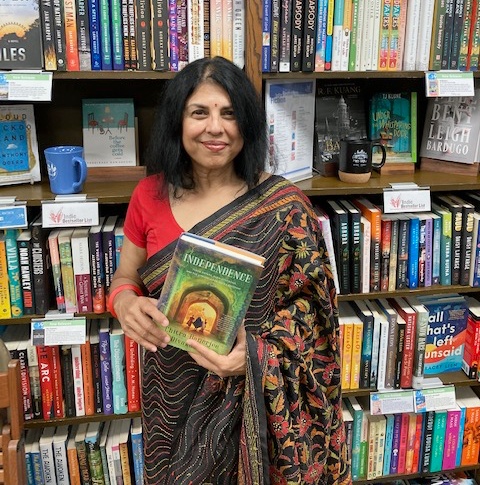
Chitra Banerjee Divakaruni, author of twenty-one books, with a writing career spanning over 30 years, might be best loved for her interpretation of Draupadi’s story from the Mahabharata in “The Palace of Illusions”. Her literary accomplishments include books adapted for the big screen, television and stage shows, book translations in 30 languages, and her work published in over 50 magazines and anthologies. Apart from novels, Chitra has also authored picture books for children and stories for young readers. Chitra’s Goodreads bio, which speaks of her humble start before gaining literary fame, reads, “To earn money for her education, she held many odd jobs, including babysitting, selling merchandise in an Indian boutique, slicing bread in a bakery, and washing instruments in a science lab. At Berkeley, she lived in the International House and worked in the dining hall.” Perhaps, this modest personal history makes Chitra Divakaruni the insightful, empathetic and deeply perceptive author she is. Readers are drawn to her strong narratives, complex storylines and feminist take on Indian mythology and history, putting women’s voices at the forefront of her stories.
The award-winning author currently lives with her family in Houston, Texas, and teaches creative writing at the University of Houston. Chitra’s latest book, “Independence” is a best-seller and has been short-listed for the AutHer Awards, 2023. We sit with the acclaimed author to learn more about her work.
You often speak of your grandfather, the first storyteller in your family and how it took you many years to understand the deep significance of storytelling. What is the true nature and purpose of good stories for you? And what makes one a good and effective storyteller?
I’m deeply grateful to my grandfather for making me fall in love with stories and storytelling. Good stories teach us to be empathetic towards people who are not like us on the surface. They make us appreciate our common humanity. An effective storyteller is one who is honest, who is not afraid to weave the truth into her work, and who has no agenda other than clear-sightedness and compassion. Then perhaps we can achieve what Kafka claimed was the goal of writing: “A book must be the axe for the frozen sea within us.” I hope my books can do this for readers.
Can you share titbits about your writing process? Is there a certain time you dedicate to writing, any specific music you like listening to or a writing habit that is unique to you?
I like to dedicate several days of the week (days when I am not going to the university to teach) to writing. I do my morning prayers and meditation, which clears my head, and then I get started. I block off several hours for this purpose. I find it difficult to write if someone else is in the room. I write at my desk in my study, or at the kitchen table. I also like to write late at night, after everyone else in the house is asleep. The quiet helps me focus.
You have spoken about how your experiences during Hurricane Katrine and Rita which struck your home city of Houston in 2012, inspired your book “One Amazing Thing”, and “Queen of Dreams” was inspired by the tragic events of 9/11. How often do you draw from personal experiences to draft your stories?
I rarely use personal experience. Even the examples above are more of national/regional disasters which affected many people—and I was only one of them. I feel this kind of communal experience is more resonant than things from my own life.
While your new book “Independence” is about India’s freedom struggle and independence from British rule, you have said it is also about what “independence” personally means for your three protagonists. What meaning does this word hold for you as a woman living in the 21st Century?
Independence, to me, is the ability to live according to my values and to follow my dreams. As the novel shows, especially for women, circumstances can make this path extremely challenging. At that point, one has to use one’s emotional intelligence and compassion to negotiate one’s path.
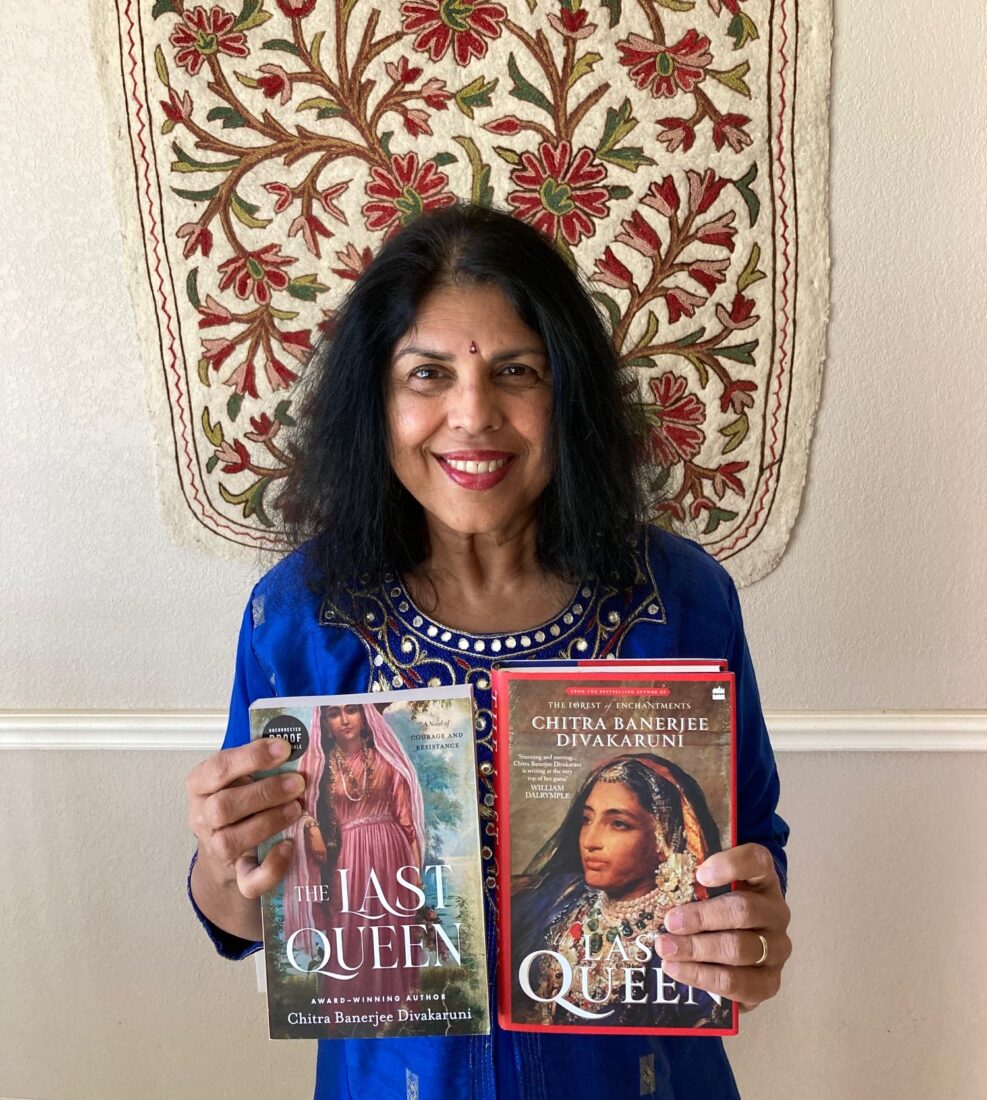
You once said that “strong women are forgotten by design.” Has it always been intentional on your part to write women-centred stories? Also, how do you balance giving each of your women protagonists a unique and distinct voice whilst staying true to history?
I’ve been aware of the importance of women telling their own stories long before I became a writer. This happened when I started volunteering at the Women’s Center at the University of California at Berkeley. Later I volunteered with domestic violence organizations and helped to found Maitri, the first South Asian organization for survivors of family violence on the West Coast of the USA. Working with many women whose voices had been silenced made me determined to put women protagonists at the center of my books.
It is tough to balance voice and historical truth. I try to achieve it by first doing the research to get the facts, then by understanding the woman, spending a lot of time in analyzing her personality and values. For instance, Maharani Jind Kaur, from my novel The Last Queen was courageous but also headstrong and stubborn. Her life was centered around her love for her husband (she and Maharajah Ranjit Singh had an amazing romance!) and then her young son, Dalip. Once I understood that, I found her voice and could stay true to her truth. I think something that helps me is that I never try to whitewash my heroines. They are human and fallible, and it’s important for all of us to accept that.
Some people might not be aware that you started your writing career writing poetry and are an award-winning poet. With so many best-selling novels under your belt, has your focus shifted entirely towards writing novels, or does the poet in you still come out to play?
I really do love writing novels. Something about creating an entire fictional world is very satisfying to me. So I think I will stay with that, at least for now. However, I love poetry and read it all the time and share it on my social media. It has made me very sensitive to imagery and visual description and even sound and cadence, and these find their way into my novels.
Which authors does this acclaimed author like to read?
I like so many authors, from Tagore to JRR Tolkien to Jane Austen to Toni Morrison to Amitav Ghosh to Margaret Atwood. If they create powerful fictional worlds and memorable characters, I’m a fan!
We would love to know what you are working on next.
I am working on a nonfiction biography, the life of a person I consider quite inspirational. The publisher will soon announce who it is. Until then, readers will have to remain curious!
Can you share three things from your bucket list?
I no longer have a bucket list. I believe in living in the present, enjoying today, and being grateful for whatever life brings me.
And, finally, how do you take your coffee?
I’m not a regular coffee drinker, but for special occasions, I like cold coffee. Iced chocolate mocha is a favorite.
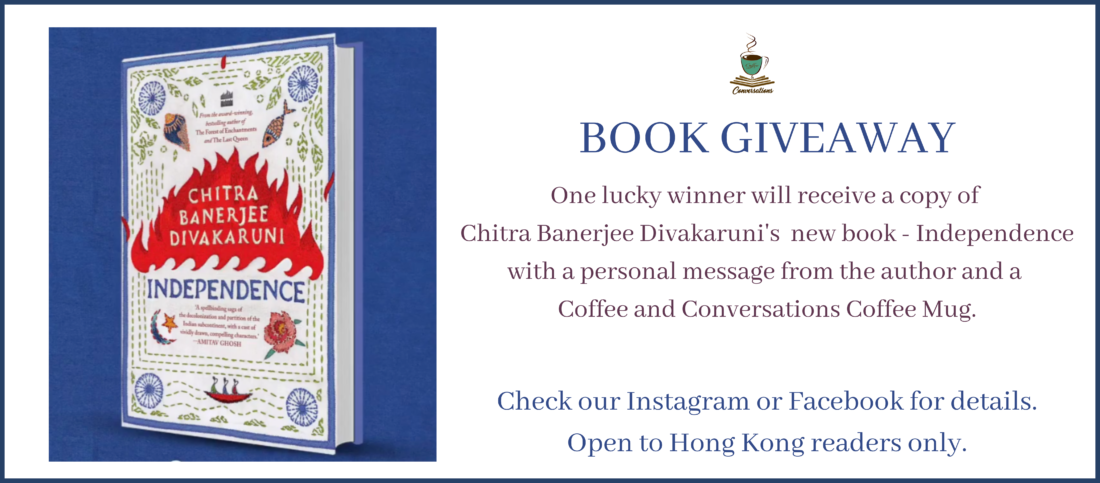
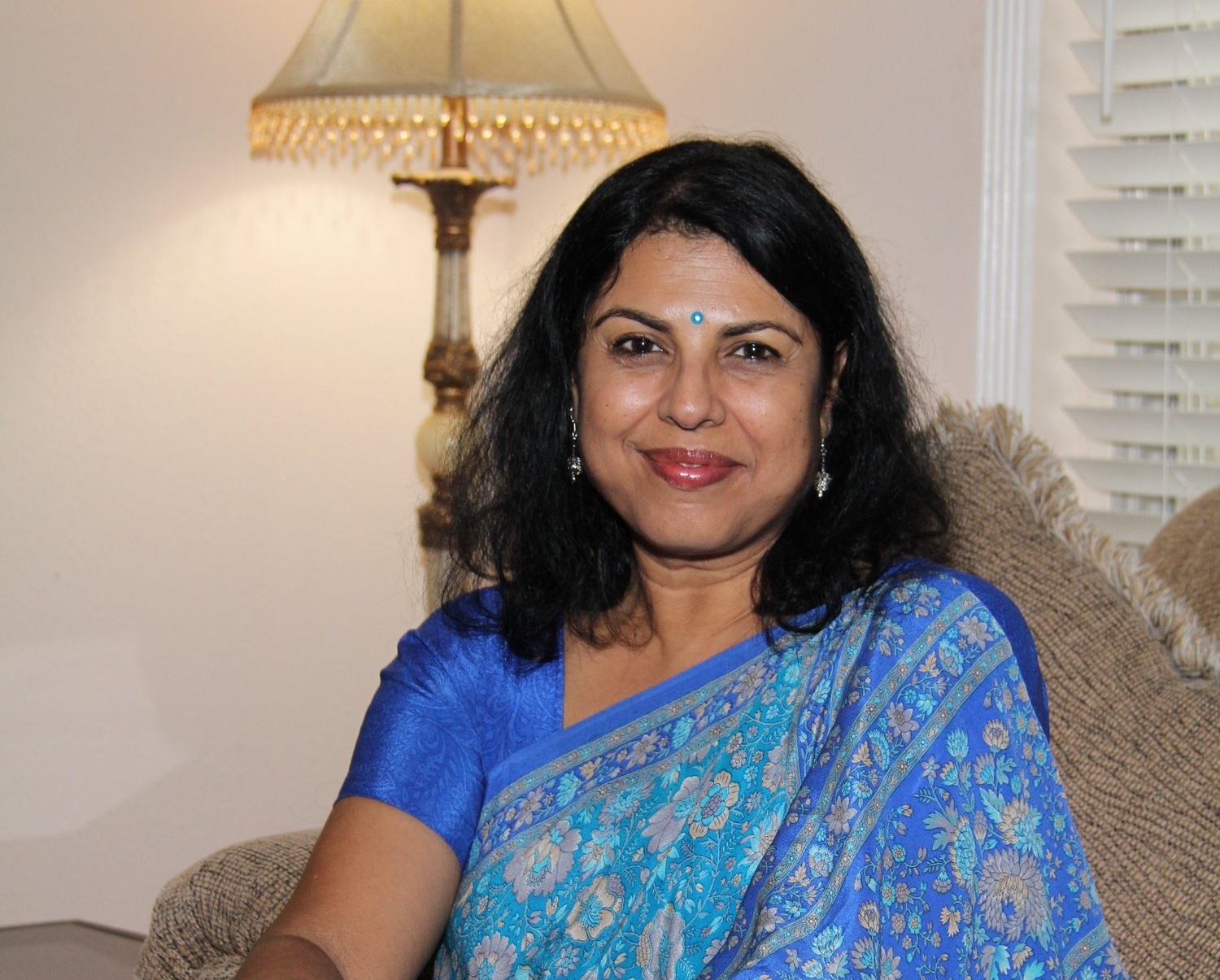
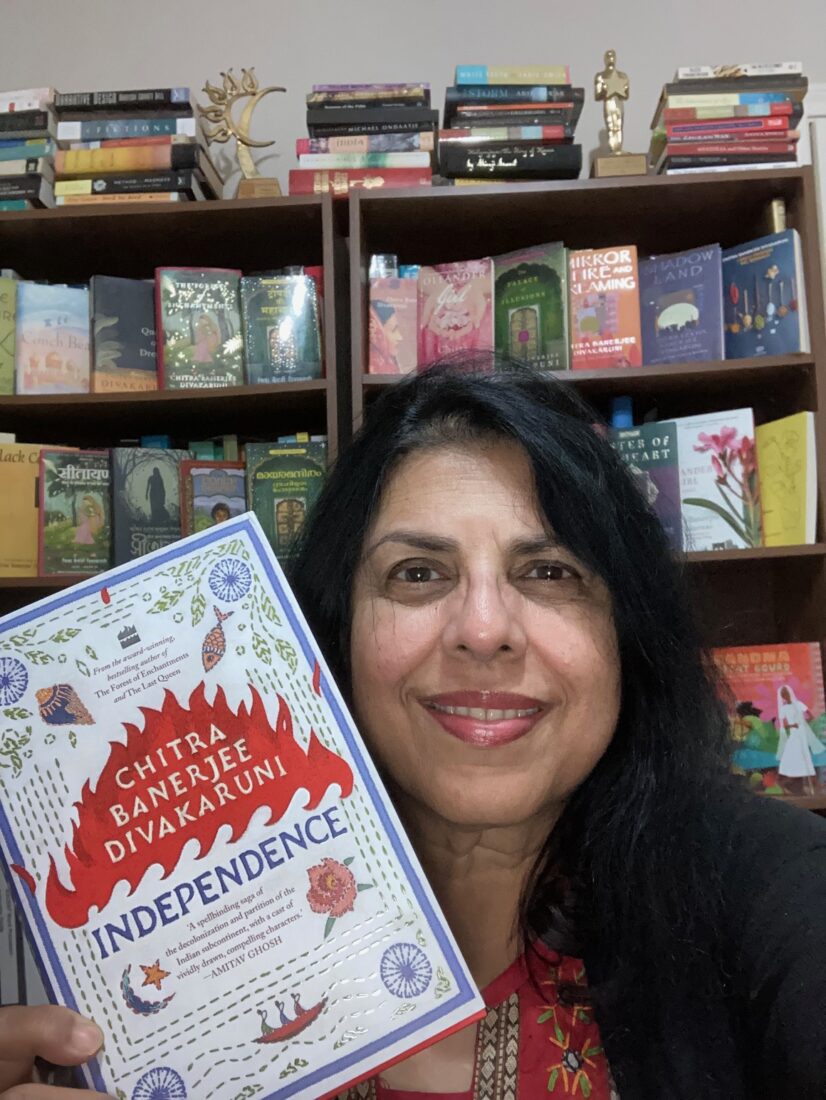
Thank you for a peek into the life of one of my favourite authors! Humbling to hear about her early life – her personal insight reflects in how she builds her characters .
Simeran, thank you so much for reading 🙂
Loved reading this Shikha! Must pick up one of her books
Puja, thank you so much for reading 🙂
Very interesting read. Have read some oh her books but keen on getting hold of Independence
Swati thank you so much for reading and we are giving away a copy of Independence which includes a personal message from the author 🙂 Please do take part.
No literary jargon , no head heavy words – very easy reading and relatable Q&A with the author.Great to have a good peek into her life , like a bird through a window.
Thank you
Thank you so much Asmita. So happy you enjoyed the interview.